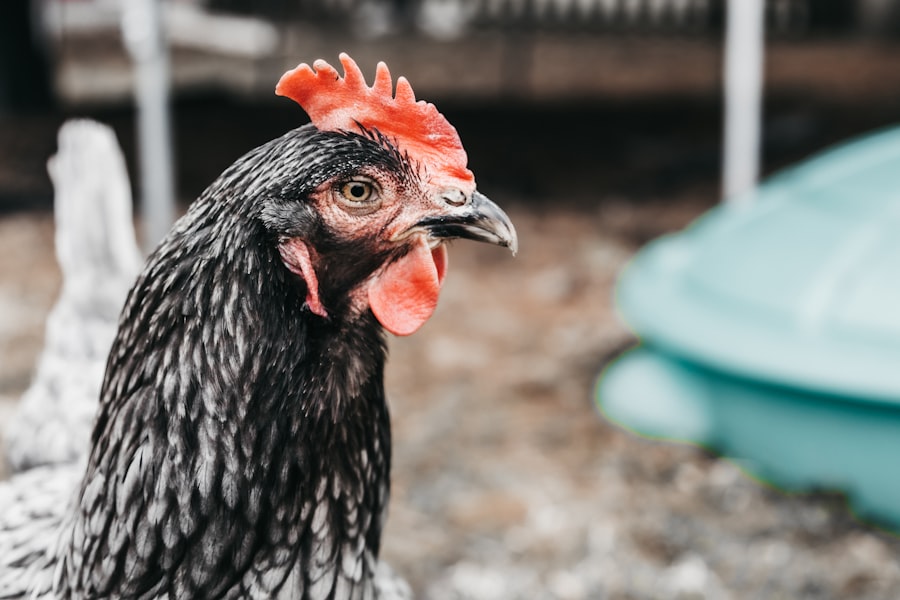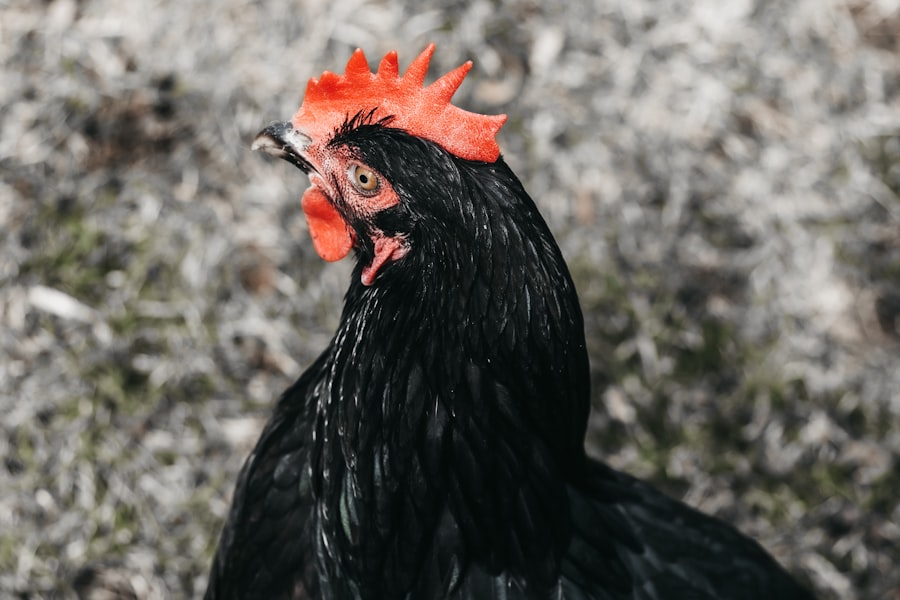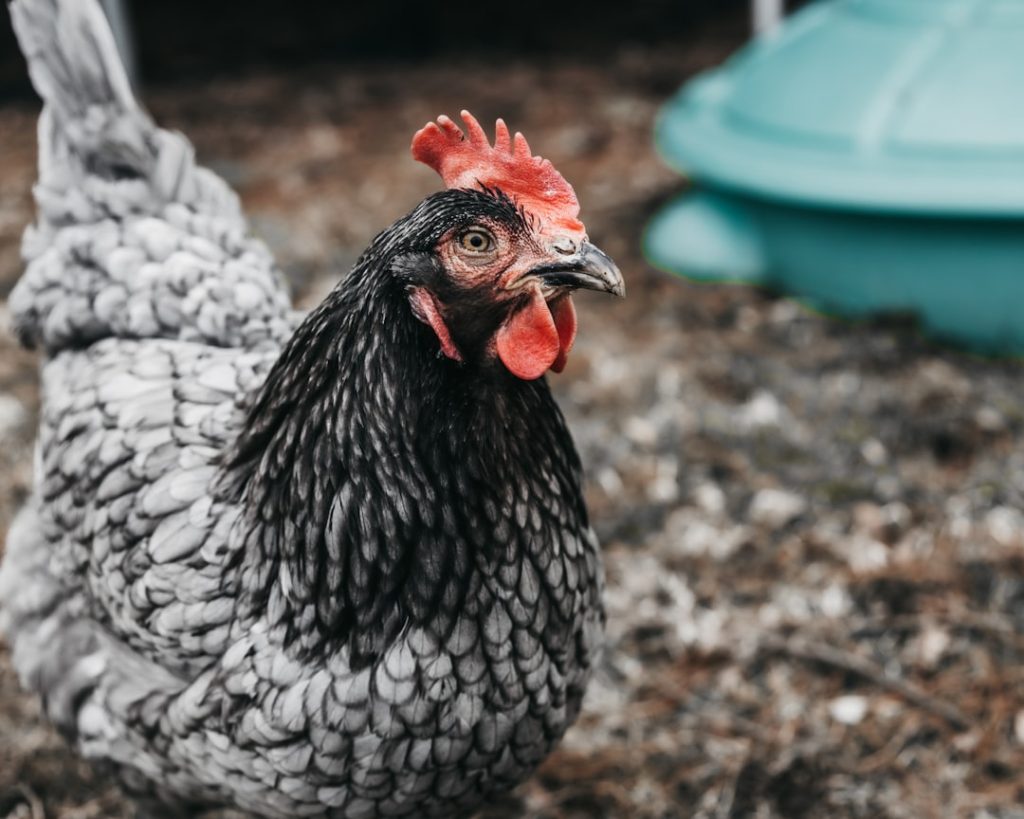When selecting chicken breeds for a flock, it is essential to consider various factors to ensure the best fit for specific needs and circumstances. There are hundreds of chicken breeds available, each with distinct characteristics, including egg-laying capacity, meat production, climate adaptability, and temperament. For those primarily interested in egg production, breeds such as Rhode Island Red, Leghorn, and Sussex are known for their high egg-laying capabilities.
Dual-purpose breeds like Plymouth Rock, Orpington, and Wyandotte are suitable for both egg and meat production. Temperament is another important consideration, as some breeds are more docile and friendly, while others may be skittish or aggressive. Climate tolerance is crucial, with certain breeds better suited for cold or warm environments.
Space requirements, local regulations, and potential health issues associated with specific breeds should also be taken into account. Thorough research on care requirements and breed-specific traits is necessary to make an informed decision. By carefully evaluating these factors, chicken keepers can select breeds that align with their goals, environment, and resources, ensuring a successful and sustainable flock.
Table of Contents
- 1 Housing and Coop Design: Creating a Safe and Comfortable Home for Your Chickens
- 2 Feeding and Nutrition: Understanding the Dietary Needs of Chickens
- 3 Health and Wellness: Maintaining the Well-being of Your Flock
- 4 Egg Production: Maximizing Your Chickens’ Egg-laying Potential
- 5 Behavior and Socialization: Understanding and Managing Chicken Behavior
- 6 Troubleshooting Common Issues: Dealing with Challenges in Chicken Keeping
- 7 FAQs
Key Takeaways
- Choose a chicken breed that suits your climate, space, and purpose, whether it’s for eggs, meat, or dual-purpose.
- Design a coop that provides enough space, ventilation, and protection from predators for your chickens to thrive.
- Ensure your chickens have access to a balanced diet that includes grains, protein, greens, and calcium for optimal health and egg production.
- Regularly monitor your flock for signs of illness, provide proper vaccinations, and maintain a clean living environment to prevent diseases.
- Implement strategies to encourage egg-laying, such as providing nesting boxes, proper lighting, and a stress-free environment for your chickens.
Housing and Coop Design: Creating a Safe and Comfortable Home for Your Chickens
Space Requirements for a Happy Flock
Chickens require a certain amount of space to live comfortably and thrive. As a general rule of thumb, you should allow at least 2-3 square feet of space per chicken inside the coop, and 8-10 square feet per chicken in an outdoor run. Providing adequate space will help prevent overcrowding and reduce the risk of aggression and stress among your flock.
Ventilation and Predator Protection
Proper ventilation is crucial for maintaining good air quality inside the coop and preventing respiratory issues. Make sure to include windows or vents that can be opened and closed as needed to allow for fresh air circulation. Predator protection is another important consideration when designing a coop. Chickens are vulnerable to predators such as foxes, raccoons, and birds of prey, so it’s essential to build a secure enclosure that will keep them safe from harm.
Easy Cleaning and Maintenance
Ease of cleaning and maintenance should also be taken into account when designing a coop. A well-designed coop will have features such as removable roosts and nesting boxes, as well as easy access to food and water containers. This will make it easier for you to keep the coop clean and sanitary, which is essential for preventing disease and maintaining the health of your flock.
By carefully considering these factors and designing a coop that meets the specific needs of your flock, you can create a safe and comfortable home for your chickens that will support their health and well-being.
Feeding and Nutrition: Understanding the Dietary Needs of Chickens

Proper feeding and nutrition are essential for maintaining the health and productivity of your flock. Chickens require a balanced diet that provides them with the necessary nutrients to support growth, egg production, and overall well-being. Understanding the dietary needs of chickens is crucial for ensuring that they receive the proper nutrition they need to thrive.
A good quality commercial chicken feed is typically the foundation of a chicken’s diet. There are different types of chicken feed available, including starter feed for young chicks, grower feed for adolescent chickens, layer feed for hens producing eggs, and broiler feed for chickens raised for meat. It’s important to select the appropriate type of feed based on the age and purpose of your chickens.
Additionally, some chicken feeds are medicated to help prevent common poultry diseases, while others are formulated with added supplements such as omega-3 fatty acids or probiotics to support overall health. In addition to commercial feed, chickens also benefit from access to fresh water and supplemental treats. Fresh water should be available at all times to keep chickens hydrated and healthy.
Treats such as fruits, vegetables, mealworms, or scratch grains can be given in moderation as a supplement to their regular diet. These treats can provide additional nutrients and help prevent boredom in the flock. It’s important to monitor your chickens’ food intake and adjust their diet as needed based on factors such as age, activity level, and environmental conditions.
For example, during periods of extreme heat or cold, chickens may require additional nutrients or adjustments to their feeding schedule. By understanding the dietary needs of chickens and providing them with a balanced diet that meets their specific requirements, you can help ensure that your flock remains healthy and productive.
Health and Wellness: Maintaining the Well-being of Your Flock
Maintaining the health and wellness of your flock is essential for ensuring that your chickens lead happy and productive lives. There are several key aspects to consider when it comes to keeping your chickens healthy, including disease prevention, parasite control, vaccination schedules, and general wellness practices. Preventing disease is one of the most important aspects of maintaining the health of your flock.
This involves implementing biosecurity measures to prevent the introduction and spread of diseases within your flock. Biosecurity practices may include quarantining new birds before introducing them to your existing flock, limiting visitors to your coop area, and practicing good hygiene when handling chickens or their equipment. Parasite control is another important aspect of maintaining the health of your flock.
Common parasites that can affect chickens include mites, lice, fleas, and worms. Regularly inspecting your chickens for signs of parasites and implementing a parasite control program can help prevent infestations and keep your flock healthy. Vaccination schedules are an important part of maintaining the health of your flock.
Depending on your location and local regulations, there may be specific vaccinations recommended or required for chickens in your area. It’s important to work with a veterinarian or poultry health professional to develop a vaccination schedule that meets the specific needs of your flock. In addition to disease prevention, parasite control, and vaccination schedules, general wellness practices such as providing clean water, a balanced diet, proper housing, and regular exercise are essential for maintaining the overall well-being of your flock.
By implementing these practices and staying vigilant about monitoring the health of your chickens, you can help ensure that they remain healthy and happy members of your backyard flock.
Egg Production: Maximizing Your Chickens’ Egg-laying Potential
For many backyard chicken keepers, one of the primary goals of raising chickens is to enjoy a steady supply of fresh eggs. Maximizing your chickens’ egg-laying potential involves several key factors including breed selection, proper nutrition, lighting conditions, nesting boxes, and overall flock management. As mentioned earlier in this article when discussing breed selection, some chicken breeds are known for their high egg-laying capabilities.
If egg production is a top priority for you, it’s important to choose breeds that are known for their prolific egg-laying abilities such as Leghorns or Rhode Island Reds. Additionally, providing your hens with a balanced diet that includes high-quality layer feed will help support optimal egg production. Lighting conditions play a significant role in egg production as well.
Chickens require approximately 14-16 hours of daylight each day to maintain consistent egg production. If natural daylight is insufficient during certain times of the year or in certain geographic locations, supplemental lighting can be used to ensure that hens receive the necessary amount of light to continue laying eggs regularly. Nesting boxes should be provided in a quiet and secluded area within the coop where hens can lay their eggs comfortably.
Each nesting box should be lined with clean bedding material such as straw or wood shavings to provide a cozy environment for hens to lay their eggs. Overall flock management practices such as maintaining a clean and stress-free environment, providing access to fresh water at all times, monitoring for signs of illness or injury, and ensuring that hens have adequate space for exercise can also contribute to maximizing egg production in your flock. By carefully considering these factors and implementing best practices for egg production in your flock, you can help ensure that your hens lay eggs consistently throughout their productive years.

Chickens are social animals with complex behaviors influenced by breed characteristics, environmental conditions, social hierarchy within the flock, and individual personalities. A natural pecking order within the flock establishes a social hierarchy among individuals, which can influence behaviors such as aggression or bullying. It’s essential to monitor interactions within the flock and intervene if necessary to prevent aggressive behavior from escalating.
Environmental Factors Affecting Behavior
Environmental conditions can significantly impact chicken behavior. Factors such as temperature extremes, overcrowding, inadequate ventilation, or lack of access to food or water can cause stress in chickens, leading to abnormal behaviors like feather pecking or egg eating. Providing a clean and comfortable living environment with adequate space for exercise can help reduce stress in your flock.
Understanding individual personalities within your flock is crucial for effectively managing chicken behavior. Some chickens may be more outgoing and friendly, while others may be more shy or skittish. By observing individual behaviors, you can tailor management practices to accommodate different personalities. Socialization is also vital, as spending time with your chickens regularly can help them become more comfortable around humans, reducing stress levels within the flock. Providing opportunities for social interaction among chickens through activities like dust bathing or roosting together can promote positive social behaviors within the flock.
Troubleshooting Common Issues: Dealing with Challenges in Chicken Keeping
Despite our best efforts in caring for our flocks, challenges may arise from time to time when keeping chickens. Common issues such as egg-eating behavior, feather pecking, bullying within the flock, egg binding in hens, or respiratory illnesses may occur at some point during your chicken keeping journey. Egg-eating behavior can be problematic if left unaddressed within a flock.
To prevent this behavior from becoming widespread among hens in your flock it’s important to promptly remove any eggs that have been broken or damaged from nesting boxes so that other hens do not develop a taste for them. Feather pecking or bullying within the flock can occur due to various reasons such as overcrowding or boredom among hens. Providing adequate space within the coop area along with environmental enrichment activities such as hanging treats or providing dust bathing areas can help reduce stress levels within the flock which may contribute to these behaviors.
Egg binding in hens is a serious condition that requires immediate attention if observed in one of your birds. Signs of egg binding include lethargy or straining when attempting to lay an egg. If you suspect that one of your hens is experiencing egg binding it’s important to seek veterinary care promptly.
Respiratory illnesses such as infectious bronchitis or mycoplasma gallisepticum can occur within flocks especially during periods of stress or when new birds are introduced into an existing flock without proper quarantine measures being taken beforehand. If respiratory illness is suspected within your flock it’s important to seek veterinary care promptly so that appropriate treatment measures can be implemented. By being aware of these common issues in chicken keeping along with implementing proactive management practices you can help ensure that any challenges that arise are addressed promptly so that your flock remains healthy and happy.
If you’re interested in learning more about the breeding and care of poultry, you might want to check out this article on when guinea fowl lay eggs. It provides valuable information on the breeding habits of guinea fowl, which can be a great addition to a backyard flock.
FAQs
What are the basic requirements for keeping chickens?
Chickens require a secure and spacious coop, access to fresh water, a balanced diet, and protection from predators. They also need space to roam and scratch for food.
What should be included in a chicken’s diet?
A chicken’s diet should include a balanced feed that provides essential nutrients, as well as access to fresh water, grit, and occasional treats such as fruits and vegetables.
How do you keep chickens healthy?
Keeping chickens healthy involves providing a clean and well-ventilated coop, regular access to fresh water, a balanced diet, and regular health checks for signs of illness or parasites.
What are some common health issues in chickens?
Common health issues in chickens include respiratory infections, parasites, and egg-laying problems. It’s important to monitor chickens for signs of illness and seek veterinary care when needed.
How do you protect chickens from predators?
To protect chickens from predators, it’s important to secure the coop with sturdy fencing, lock the coop at night, and use deterrents such as motion-activated lights or sound devices.
What are the benefits of keeping chickens?
Keeping chickens can provide a sustainable source of fresh eggs, natural pest control in the garden, and the enjoyment of observing and caring for these unique and entertaining animals.
Meet Walter, the feathered-friend fanatic of Florida! Nestled in the sunshine state, Walter struts through life with his feathered companions, clucking his way to happiness. With a coop that’s fancier than a five-star hotel, he’s the Don Juan of the chicken world. When he’s not teaching his hens to do the cha-cha, you’ll find him in a heated debate with his prized rooster, Sir Clucks-a-Lot. Walter’s poultry passion is no yolk; he’s the sunny-side-up guy you never knew you needed in your flock of friends!







